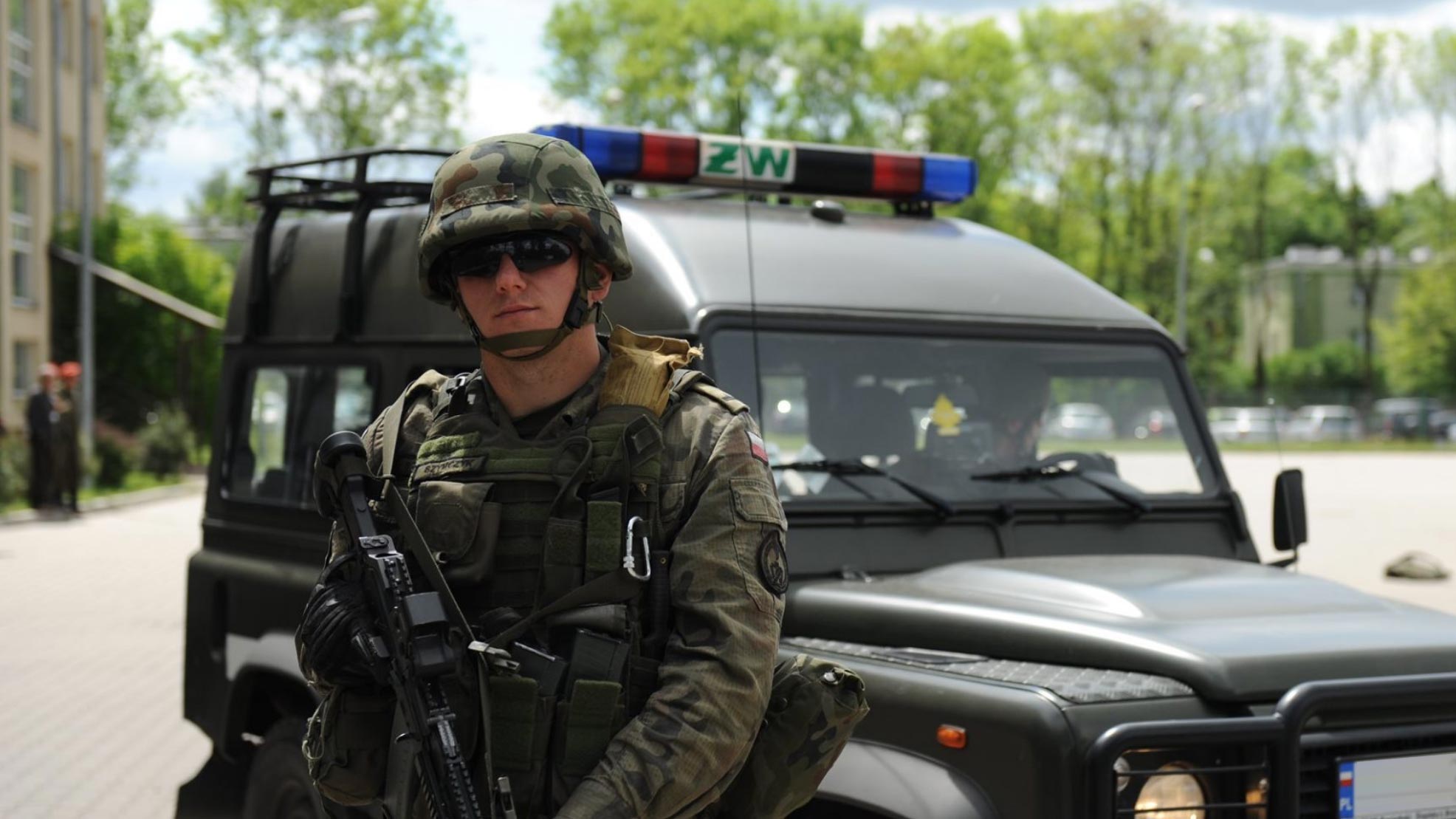The Military Gendarmerie is a separate and specialized service within the Armed Forces of the Republic of Poland, whose activities focus on ensuring compliance with military discipline, protecting public order and preventing crimes being committed on the premises of military units and in public places.
The Military Gendarmerie performs its statutory tasks in accordance with the Act on the Military Gendarmerie and Military Law Bodies, which specifies in detail jurisdiction, tasks, duties and powers of the Military Gendarmerie in the Polish Armed Forces.
Pursuant to Article 3 of the Act, the Military Gendarmerie is entitled to perform tasks falling within its scope of activity in relation to:
- soldiers on active military service;
- soldiers who are not in active military service while they are wearing their uniforms and military badges;
- employees of military units:
- in connection with their behaviour while working in these units;
- in connection with the commission by them of an act prohibited by the law, under penalty, related to this employment;
- persons on military grounds or facilities;
- other persons subject to the jurisprudence of military courts;
- persons who are not soldiers, if they cooperate with the persons mentioned above, in committing an act prohibited by the act under penalty of penalty or if they commit acts that threaten military discipline or act against the health or life of a soldier or military property;
- soldiers of the armed forces of foreign countries residing on the territory of the Republic of Poland and members of their civilian personnel, if they are related to the performance of official duties.
The tasks of the Military Gendarmerie are specified in Article 4 of the Act:
- ensuring compliance with military discipline;
- protection of public order on the grounds and facilities of military units and in public places;
- protecting human life and health and military property against attacks violating these goods;
- detection of crimes and offences, including fiscal offences, committed by persons for whom the Military Gendarmerie is competent, disclosing and prosecuting their perpetrators, as well as disclosing and securing evidence of these crimes and offences;
- analysing asset declarations of professional soldiers and submitting conclusions in this regard to the Minister of National Defence;
- preventing crimes and offences by persons in relation to whom the Military Gendarmerie is competent and other pathological phenomena, in particular alcoholism and drug addiction in the Armed Forces;
- cooperation with Polish and foreign authorities and services competent in matters of safety and public order as well as military police;
- combating natural disasters, extraordinary environmental threats and eliminating their consequences as well as active participation in search, rescue and humanitarian actions aimed at protection of life, health and property;
- performing other tasks specified in separate regulations.
The Military Gendarmerie actively participated in and participates in peace and stabilization missions under the auspices of NATO, UN and EU. Gendarmes were on duty in Iraq, Syria, Lebanon, the Democratic Republic of Congo, Central African Republic and Chad. Currently, soldiers of the Military Contingent are present in Afghanistan, Bosnia and Herzegovina and Kosovo.
The formation forms also the core of the NATO Multinational Military Police Battalion, and the application of other military police to participate in this initiative is an expression of approval for the international cooperation so far and recognition by foreign partners of the leading role of the Military Gendarmerie. In addition to the Military Gendarmerie, the Battalion includes Military Police units of Croatia, the Czech Republic and Slovakia.
The Military Gendarmerie also assigns sub-units to the European Union Battle Groups and the NATO Response Force. Moreover, it is also a member of the European Gendarmerie Force.
The Military Gendarmerie cooperates on a permanent basis with civil institutions at the central and local level, as well as with the Police, Border Guard, State Fire Service, General Customs Inspector, Chief Inspector of Fiscal Control, the Government Protection Service and the Internal Security Agency, among others.
